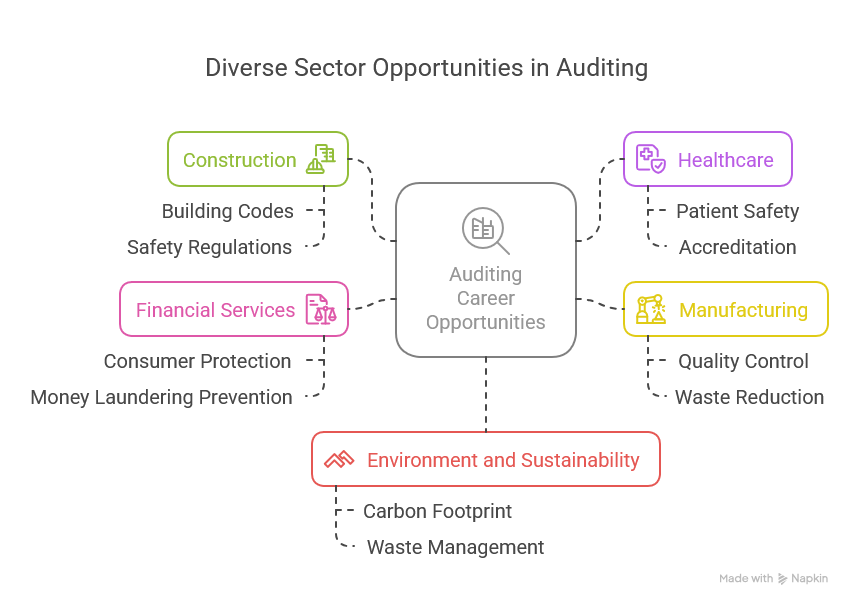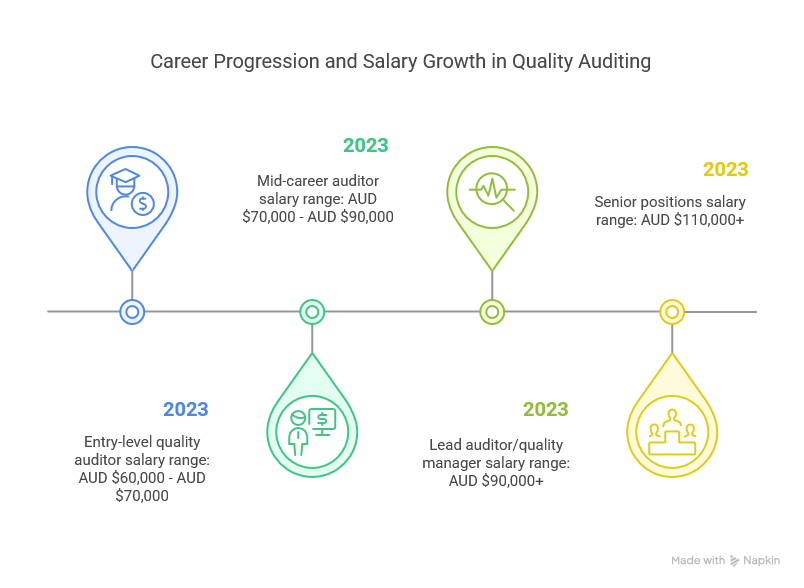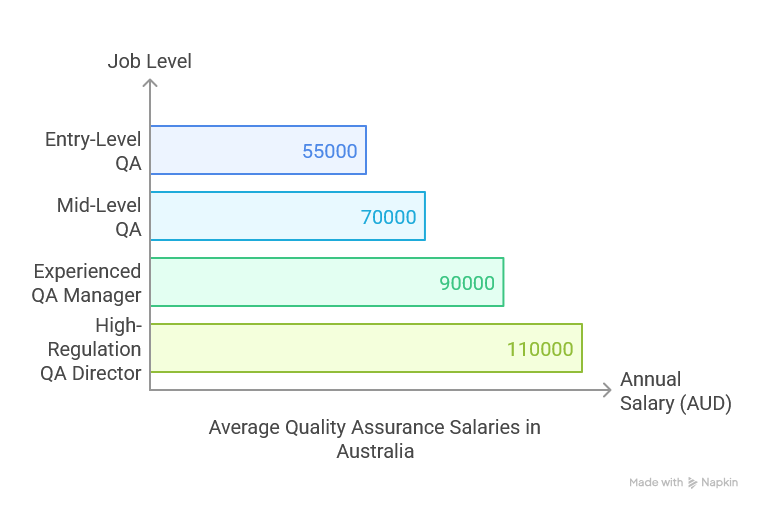Quality Assurance (QA) accreditation frequently appears in conversations about organisational excellence, particularly in sectors where safety, compliance, and customer satisfaction are paramount. While "QA accreditation" can sound like a specialised term, the concept is relatively straightforward—it's a formal certification that indicates an organisation's products, services, or processes meet recognised quality standards. This article clarifies what QA accreditation entails, why it matters, and how it ties into the broader arena of quality auditing. If you are curious about how organisations align with best practices and regulations, QA accreditation is a core piece of the puzzle.
QA accreditation generally refers to the process by which an independent, third-party body evaluates whether an organisation meets certain predefined standards. These standards could be national, international, or industry-specific. For instance, an Australian manufacturer might seek accreditation for ISO 9001 (Quality Management Systems) to demonstrate global competitiveness. Achieving accreditation is not merely about passing a single test; it involves an in-depth audit of policies, procedures, and outcomes to confirm they align with the chosen standard.
What sets QA accreditation apart from an internal check is its formal recognition by an authoritative body. This recognition can increase stakeholder trust, boost customer confidence, and potentially open up new market opportunities. Businesses often display accreditation certificates prominently to signal their commitment to quality.

Different Types of QA Accreditation
There is a wide range of accreditation pathways, each aligned with different standards or industry requirements:
ISO Standards
Managed by the International Organization for Standardization (ISO), these frameworks address everything from basic quality management (ISO 9001) to environmental management (ISO 14001) and occupational health and safety (ISO 45001). Organisations that achieve these certifications often do so to validate their processes on an international scale.
National Standards
Various Australian regulators and industry bodies define quality benchmarks that organisations can meet. Examples include accreditation by the Australian Council on Healthcare Standards (ACHS) for hospitals or the National Association of Testing Authorities (NATA) for labs and testing facilities.
Sector-Specific Standards
Certain industries have tailored standards—for instance, the food and beverage sector might follow HACCP, while the construction industry may adhere to relevant building codes. Accreditation ensures that the organisation consistently upholds these sector-specific guidelines.
Why QA Accreditation Matters
From a business standpoint, QA accreditation delivers tangible benefits:
Enhanced Credibility
Carrying a recognised accreditation signals that an external authority has verified the organisation's adherence to best practices. This often proves appealing to customers and partners who want reassurance about quality.
Better Operational Efficiency
The assessment process leading to accreditation typically uncovers inefficiencies. By addressing these gaps, organisations reduce waste, improve productivity, and clarify responsibilities.
Regulatory Compliance
Accreditation helps companies keep up with legislative requirements. For instance, certain government contracts may mandate that suppliers hold ISO certifications or other industry accreditations.
Access to New Markets
In many sectors, especially internationally, accreditation can be a prerequisite to trading. Meeting universal standards such as ISO 9001 paves the way for partnerships in new regions or with multinational corporations.
Less Risk and Liability
Organisations with robust QA systems tend to experience fewer failures or incidents. This can translate into lower insurance premiums and a reduced risk of legal complications.

The Role of Quality Auditors
Quality auditors play a critical part in helping organisations achieve and maintain QA accreditation. Through formal audits, they assess current processes, identify nonconformities, and recommend corrective actions. Auditors frequently compare an organisation's practices to the accreditation's standard requirements, ensuring that the business is truly ready for the third-party review that leads to formal recognition.
Internal vs. External Audits
While internal auditors may conduct preliminary checks to gauge whether the organisation meets the standard, external auditors from an accredited certification body carry out the final evaluation. The internal audits serve as practice runs, highlighting issues that need correction. External auditors validate that the organisation meets every element of the standard consistently.
A structured education in quality auditing, such as the BSB50920 Diploma of Quality Auditing, can prepare professionals to guide accreditation efforts effectively. Courses provide frameworks for conducting thorough audits, reporting findings, and implementing improvements. Graduates can emerge with the know-how to navigate different accreditation standards and align them with broader business objectives.
Common Challenges in QA Accreditation
Although beneficial, QA accreditation is not an easy box to tick. Organisations often grapple with:
Resource Allocation
Preparing for accreditation requires time, personnel, and financial investment. Small to medium enterprises, in particular, might need to stretch limited resources.
Documentation Overload
Standards typically require detailed records. Without robust documentation practices in place, an organisation may find it cumbersome to gather the necessary evidence.
Cultural Shifts
Accreditation often demands new policies or changes in daily routines. Some staff might resist adjusting their established work habits, especially if they do not understand why the change is beneficial.
Ongoing Maintenance
Accreditation is rarely a once-and-done exercise. Many standards require periodic re-assessments to maintain the credential. Organisations must stay vigilant, continuously updating processes to remain compliant.
Steps in the QA Accreditation Journey
Though each accreditation process can differ, a common sequence often applies:
Gap Analysis
Before formally starting the accreditation process, an organisation may conduct a gap analysis, identifying areas where current practices deviate from the standard's requirements.
Action Planning
Once gaps are known, the organisation formulates an action plan, addressing deficiencies step by step. This might include rewriting certain policies, retraining staff, or purchasing updated equipment.
Implementation
Here, the organisation puts new systems or improvements into practice. During this phase, a series of internal audits might take place, overseen by trained quality auditors who verify whether the changes effectively address nonconformities.
Certification Audit
An external auditor or certification body arrives to evaluate the organisation's readiness. If everything aligns with the standard, the organisation is granted accreditation. If not, a corrective action period may be given to resolve issues before re-evaluation.
Ongoing Improvement
Accreditation bodies typically schedule surveillance audits over the certificate's validity period. This continuous process ensures that the organisation does not slip back into non-compliance once certification is granted.

Link to Organisational Strategy
Some businesses might see QA accreditation purely as a marketing tool or a contractual requirement. However, the accreditation framework can also inform a broader strategic approach. By routinely evaluating performance metrics and standards, organisations gain data-driven insights for future product or service development. As quality management becomes part of the corporate culture, teams at all levels learn to view continuous improvement as an essential element of success.
Common Myths
One misconception is that QA accreditation is only relevant to large corporations with extensive budgets. In reality, small and medium-sized enterprises also benefit significantly. Accreditation provides a structured approach to quality that can help smaller firms gain customer confidence and differentiate themselves from competitors. Another myth is that accreditation is purely red tape. While documentation is significant, the overall aim is to improve processes and outcomes, making the investment worthwhile for businesses of nearly any size.
QA accreditation is a powerful tool for organisations dedicated to delivering consistent quality. It involves thorough auditing and ongoing validation by recognised third parties, ensuring stakeholders can trust the quality of products or services.
For professionals interested in quality management or those working through quality auditing courses, understanding accreditation helps clarify how audits fit into the bigger organisational picture. By guiding companies to document and refine their processes, quality auditors effectively pave the way for successful accreditation and sustained excellence.
If you'd like to explore how a formal qualification can enhance your capacity to support QA accreditation, check the main article on the BSB50920 Diploma of Quality Auditing or delve into other articles about quality auditing. You will discover how structured training can help you master the full accreditation process. As a next step, speaking with an industry association or training provider can clarify which accreditation pathways are most relevant to your field.